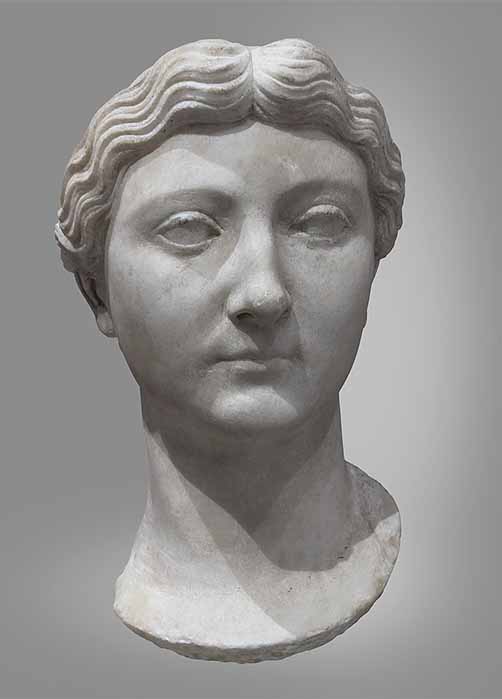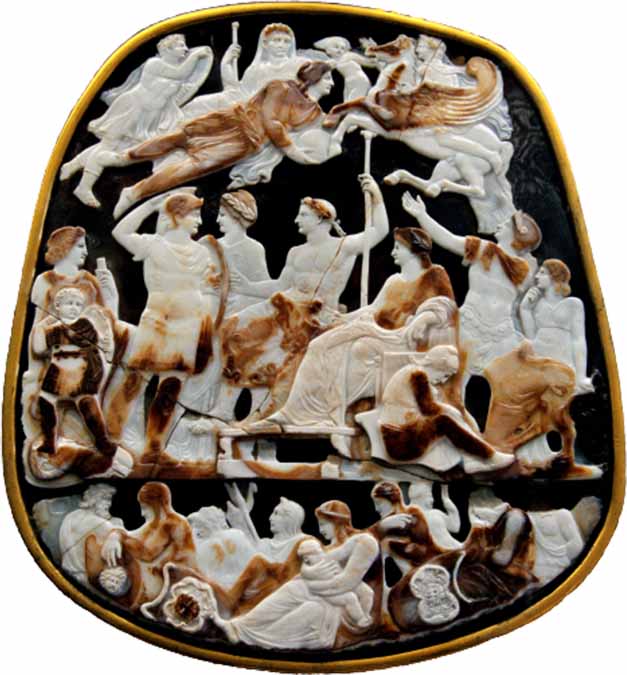
Remarkable Early Life Of Livia, Destined To Become Empress And Deified Augusta
In 29 AD, Livia, the Empress of Rome and the widow of Emperor Augustus, died at the age of 86. Although she was the mother of Tiberius, the current Emperor of Rome, and an Empress through her own marriage to Emperor Augustus, her funeral was very low-key by the standards of the Roman imperial family. When Augustus' sister Octavia died in 11 BC, her funeral oration was delivered by Augustus himself in his capacity as both Octavia’s brother and Emperor of Rome. Drusus, Livia's younger son, then spoke from the rostra in the forum. Drusus and Lucius Domitius Ahenobarbus, Octavia's sons-in-law, carried Octavia’s remains in procession to her final resting place in the Temple of Divus Julius.

Mausoleum of Augustus in Rome (CC BY-SA 2.0)
By contrast, the only person who spoke at Livia’s funeral was her great-grandson Caligula (later to become Emperor from 37 – 41 AD) before Livia was buried in the Mausoleum of Augustus with minimal ceremony. Her son, Emperor Tiberius did not speak at Livia’s funeral. He did not release any coins to commemorate her passing and he refused any public honors that the Senate wanted to bestow upon her. However, as a testament to Livia’s influence in her lifetime, the senators mandated that the women observe an official year-long period of mourning in which they were instructed to wear black attire, loosen their hair, and not wear any jewelry during this time. The Senate also voted for an arch to honor Livia in remembrance of her deeds of charity and goodwill. However, the plan never came to fruition as, although Tiberius did not immediately resist this plan, he instead promised rather heroically to build the arch with his own money instead of using the public funds. However, he conveniently neglected ever making a start on the arch and thus the senatorial edict was politely disregarded by the Emperor.
Perhaps of all the honors that the Senate wanted to give Livia, the motion to vote on Livia's divine honors was the most important. Although Livia’s cult had grown throughout the Empire even during her lifetime, the Senate's proposal entailed the formal acknowledgment of her divinity in Rome, complete with a temple and priests of her own. Thus, Livia would have been the first woman in Rome's history to be dedicated to the worship of a goddess.

Bust of Livia Drusilla. Musée Saint-Raymond, Toulouse (Public Domain)
Deifying Livia
Despite his persona as a learned eccentric, Emperor Claudius (r. 41 – 54 AD) seized power after the death of Caligula with efficiency through a military takeover. Therefore, he would have been eager to highlight his family’s prominence to show his credibility. Improving Livia's standing, as she was his grandmother, would inevitably result in improving his own. Among his first actions were the divine honors bestowed upon Livia on the anniversary of her marriage to Augustus as well as what would have been her 100th birthday.

The Great Cameo of France depicting Emperors Augustus (Octavian), Tiberius, Claudius and Nero. (Cameo of France / CC BY-SA 3.0)




